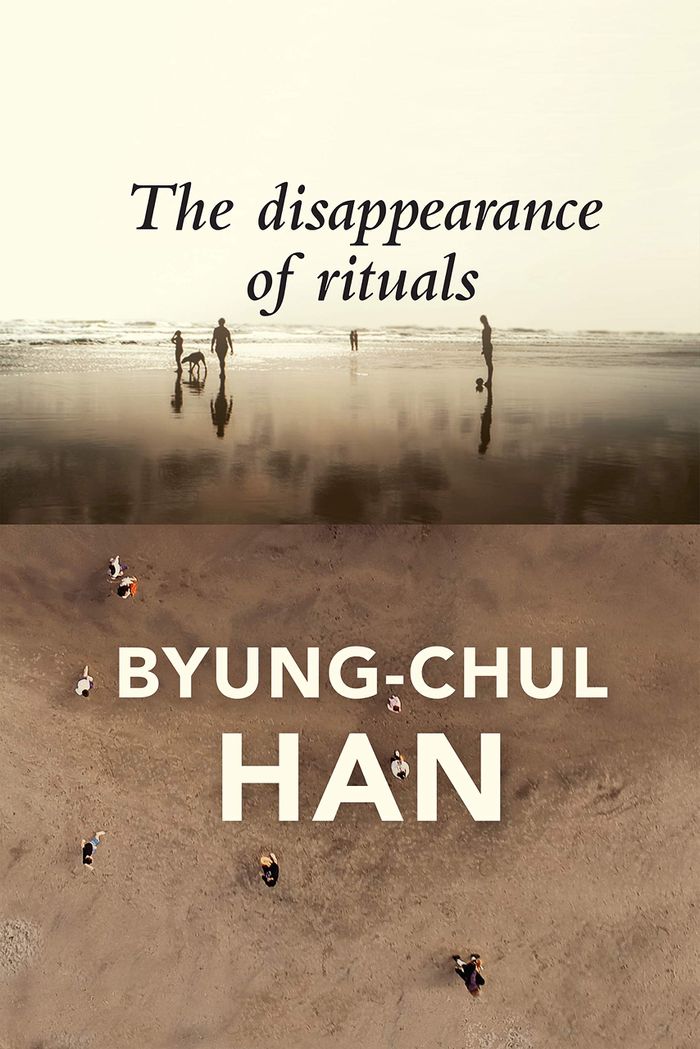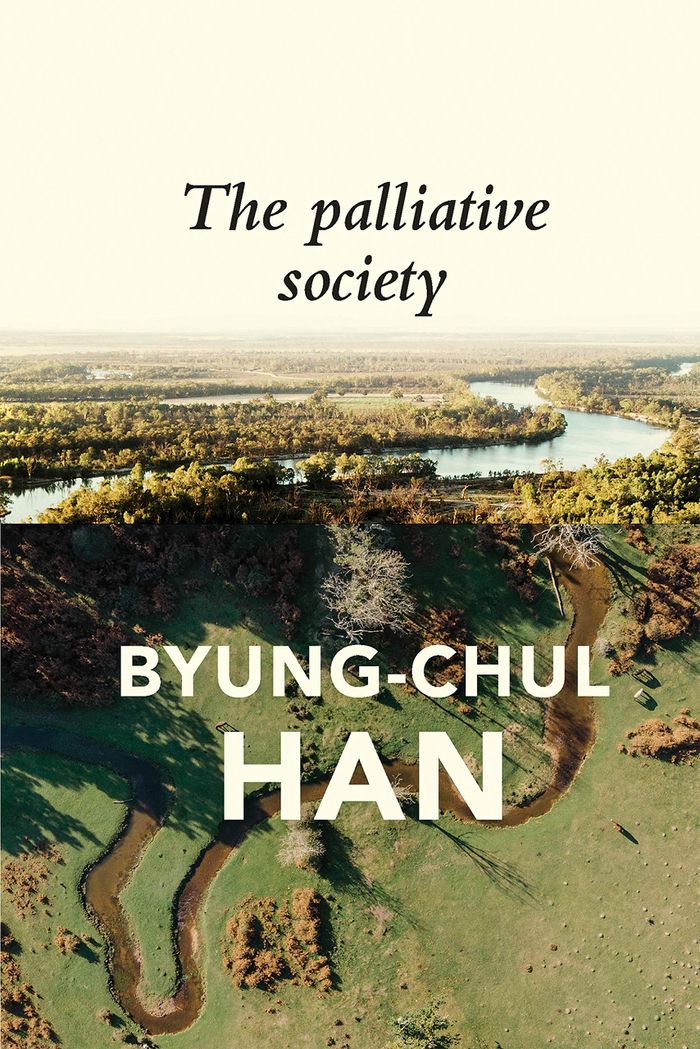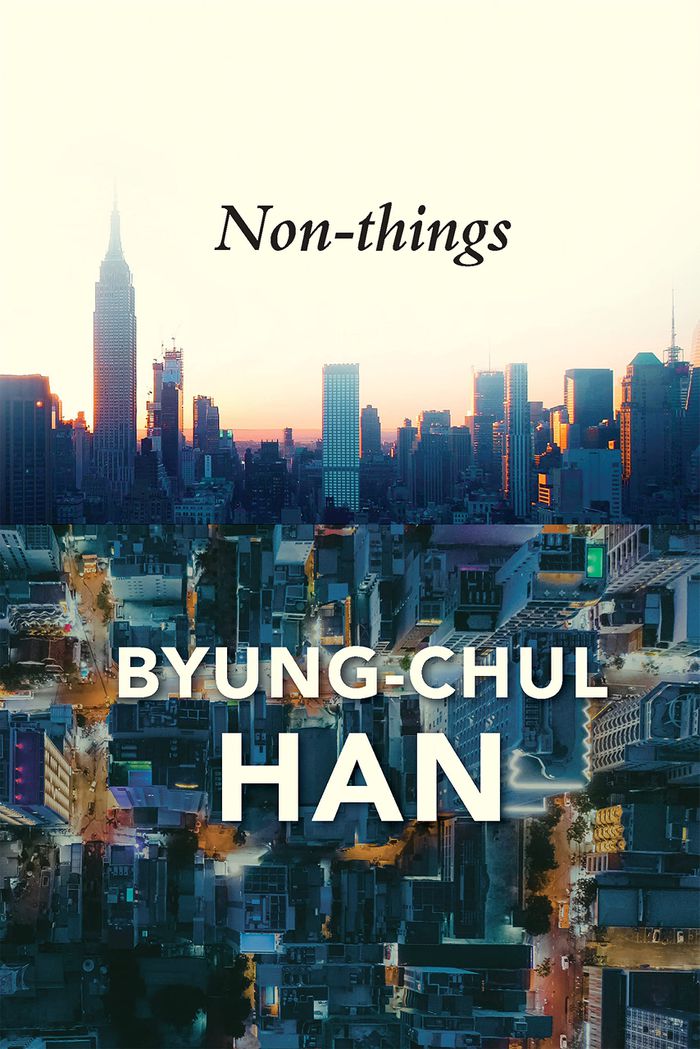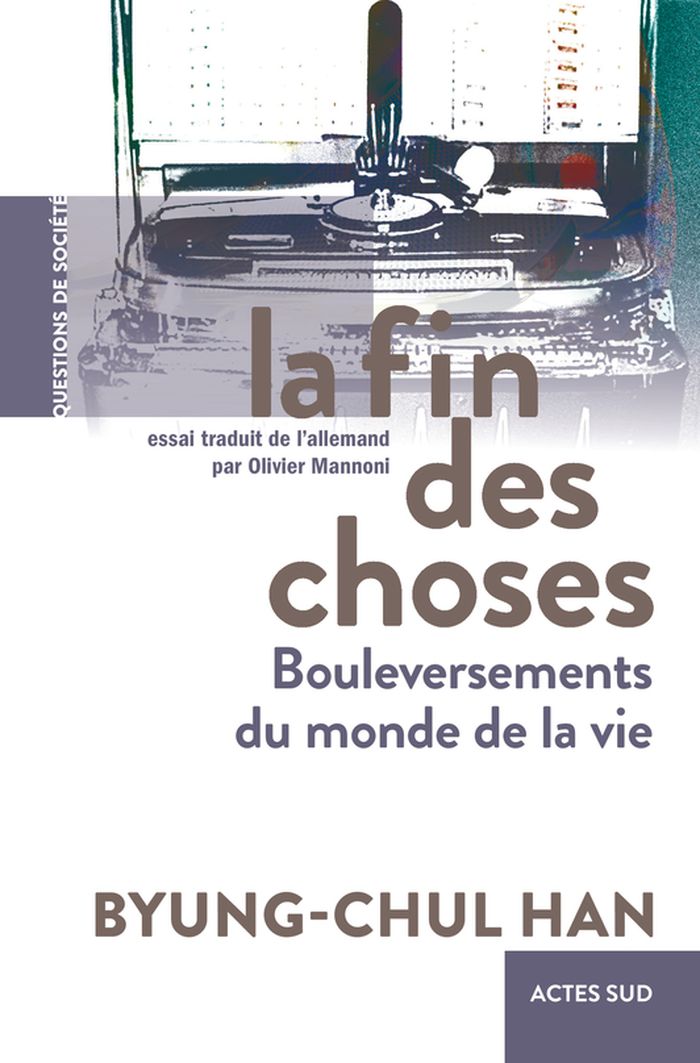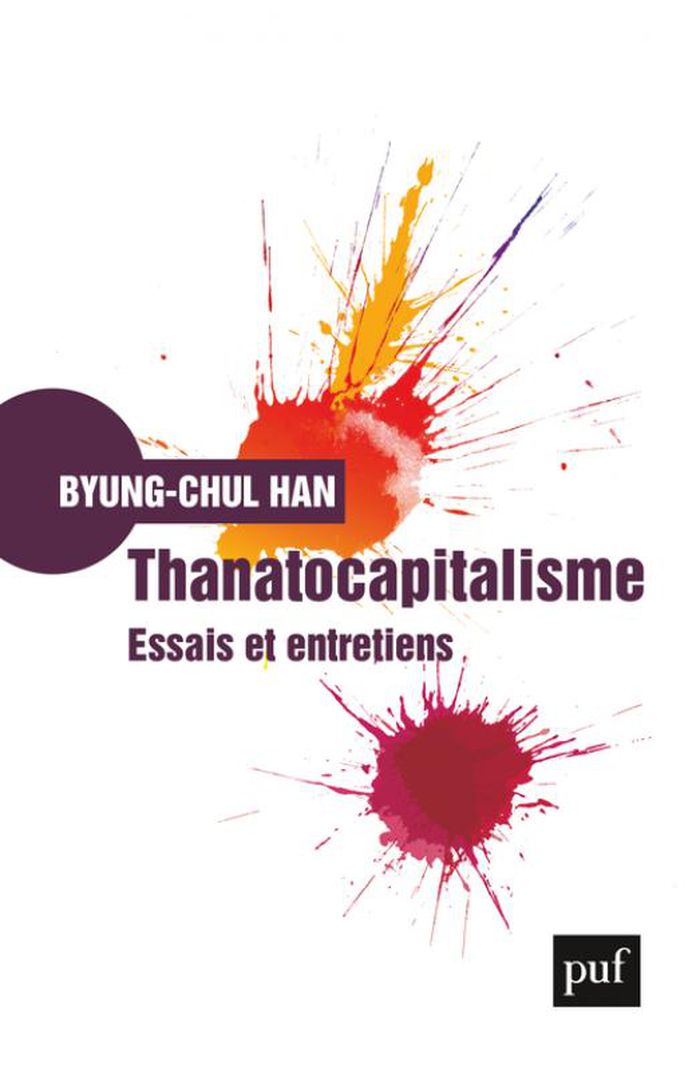$19.95
(disponible sur commande)
Résumé:
Untrammelled neoliberalism and the inexorable force of production have produced a 21st century crisis of community: a narcissistic cult of authenticity and mass turning-inward are among the pathologies engendered by it. We are individuals afloat in an atomised society, where the loss of the symbolic structures inherent in ritual behaviour has led to overdependence on the(...)
The disappearance of rituals: A topology of the present
Actions:
Prix:
$19.95
(disponible sur commande)
Résumé:
Untrammelled neoliberalism and the inexorable force of production have produced a 21st century crisis of community: a narcissistic cult of authenticity and mass turning-inward are among the pathologies engendered by it. We are individuals afloat in an atomised society, where the loss of the symbolic structures inherent in ritual behaviour has led to overdependence on the contingent to steer identity. Avoiding saccharine nostalgia for the rituals of the past, Han provides a genealogy of their disappearance as a means of diagnosing the pathologies of the present. He juxtaposes a community without communication – where the intensity of togetherness in silent recognition provides structure and meaning – to today’s communication without community, which does away with collective feelings and leaves individuals exposed to exploitation and manipulation by neoliberal psycho-politics. The community that is invoked everywhere today is an atrophied and commoditized community that lacks the symbolic power to bind people together. For Han, it is only the mutual praxis of recognition borne by the ritualistic sharing of the symbolic between members of a community which creates the footholds of objectivity allowing us to make sense of time.
Théorie/ philosophie
The palliative society
$19.95
(disponible sur commande)
Résumé:
Our societies today are characterized by a universal algophobia: a generalized fear of pain. We strive to avoid all painful conditions – even the pain of love is treated as suspect. This algophobia extends into society: less and less space is given to conflicts and controversies that might prompt painful discussions. It takes hold of politics too: politics becomes a(...)
The palliative society
Actions:
Prix:
$19.95
(disponible sur commande)
Résumé:
Our societies today are characterized by a universal algophobia: a generalized fear of pain. We strive to avoid all painful conditions – even the pain of love is treated as suspect. This algophobia extends into society: less and less space is given to conflicts and controversies that might prompt painful discussions. It takes hold of politics too: politics becomes a palliative politics that is incapable of implementing radical reforms that might be painful, so all we get is more of the same. Faced with the coronavirus pandemic, the palliative society is transformed into a society of survival. The virus enters the palliative zone of well-being and turns it into a quarantine zone in which life is increasingly focused on survival. And the more life becomes survival, the greater the fear of death: the pandemic makes death, which we had carefully repressed and set aside, visible again. Everywhere, the prolongation of life at any cost is the preeminent value, and we are prepared to sacrifice everything that makes life worth living for the sake of survival. This trenchant analysis of our contemporary societies by one of the most original cultural critics of our time will appeal to a wide readership.
Théorie/ philosophie
$19.95
(disponible sur commande)
Résumé:
Byung-Chul Han’s critique of the infosphere highlights the price we are paying for our growing preoccupation with information and communication. Today we search for more information without gaining any real knowledge. We communicate constantly without participating in a community. We save masses of data without keeping track of our memories. We accumulate friends and(...)
Non-things: Upheaval in the lifeworld
Actions:
Prix:
$19.95
(disponible sur commande)
Résumé:
Byung-Chul Han’s critique of the infosphere highlights the price we are paying for our growing preoccupation with information and communication. Today we search for more information without gaining any real knowledge. We communicate constantly without participating in a community. We save masses of data without keeping track of our memories. We accumulate friends and followers without encountering other people. This is how information develops a form of life that has no stability or duration. And as we become increasingly absorbed in the infosphere, we lose touch with the magic of things which provide a stable environment for dwelling and give continuity to human life. The infosphere may seem to grant us new freedoms but it creates new forms of control too, and it cuts us off from the kind of freedom that is tied to acting in the world.
Théorie/ philosophie
La fin des choses
$29.95
(disponible en magasin)
Résumé:
L’ère de la numérisation transforme les choses en simples acteurs traitant de l’information. Mais que deviennent les choses lorsque, pénétrées par les informations, elles s’immatérialisent ? Le smartphone, la photographie numérique et l’intelligence artificielle sont les principales cibles de cette étude sur l’inhumanité en marche, dont le point d’orgue, a contrario, est(...)
La fin des choses
Actions:
Prix:
$29.95
(disponible en magasin)
Résumé:
L’ère de la numérisation transforme les choses en simples acteurs traitant de l’information. Mais que deviennent les choses lorsque, pénétrées par les informations, elles s’immatérialisent ? Le smartphone, la photographie numérique et l’intelligence artificielle sont les principales cibles de cette étude sur l’inhumanité en marche, dont le point d’orgue, a contrario, est un hymne émouvant au juke-box – la chose par excellence. “Son vrombissement lui vient des profondeurs du ventre, comme s’il était l’expression de sa volupté. Le son numérique est dénué de tout bruit de chose. Il est incorporel et lisse. Le son que le juke-box produit relève à la fois de la chose et du corps.” Il s’agit sans doute l’essai de Byung-Chul Han le plus nostalgique, le plus touchant et le plus polémique.
Théorie/ philosophie
$27.95
(disponible en magasin)
Résumé:
Ce que nous nommons la croissance aujourd’hui est en fait une excroissance, une prolifération qui détruit l’organisme social. D’une vitalité inexplicable et mortelle, ses excès métastasent et prolifèrent à l’infini. Arrivée à un certain stade, la production devient destructrice : le capitalisme a depuis longtemps dépassé ce point critique. Ses pouvoirs destructeurs(...)
Thanatocapitalisme : essais et entretiens
Actions:
Prix:
$27.95
(disponible en magasin)
Résumé:
Ce que nous nommons la croissance aujourd’hui est en fait une excroissance, une prolifération qui détruit l’organisme social. D’une vitalité inexplicable et mortelle, ses excès métastasent et prolifèrent à l’infini. Arrivée à un certain stade, la production devient destructrice : le capitalisme a depuis longtemps dépassé ce point critique. Ses pouvoirs destructeurs produisent non seulement des catastrophes écologiques ou sociales, mais aussi des catastrophes mentales. Les effets dévastateurs du capitalisme suggèrent l’influence d’une pulsion de mort. Penser le capitalisme aujourd’hui ne peut se faire sans l’acceptation de cette pulsion.
Théorie/ philosophie
